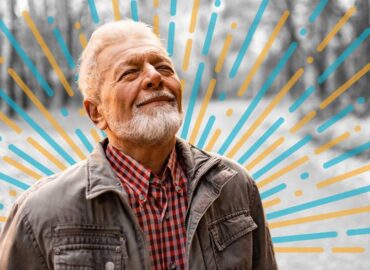 Emphysema is a chronic lung condition that primarily affects older adults, making it difficult to breathe and engage in daily activities. Understanding the causes, symptoms, and treatments can empower individuals and their caregivers to manage the condition effectively and improve quality of life.
Emphysema is a chronic lung condition that primarily affects older adults, making it difficult to breathe and engage in daily activities. Understanding the causes, symptoms, and treatments can empower individuals and their caregivers to manage the condition effectively and improve quality of life.
What is Emphysema?
Emphysema is a type of chronic obstructive pulmonary disease (COPD) where the air sacs in the lungs (alveoli) become damaged. Over time, this damage reduces the lungs’ ability to exchange oxygen, leading to shortness of breath, fatigue, and other respiratory symptoms.
What Causes Emphysema in Elderly People?
The most common cause of emphysema is long-term exposure to irritants, such as:
- Smoking: The leading cause of emphysema, even among former smokers.
- Air Pollution: Long-term exposure to environmental toxins can damage lung tissue.
- Occupational Hazards: Dust, chemicals, or fumes from certain jobs can contribute to lung damage.
- Genetics: Some individuals inherit a rare condition called alpha-1 antitrypsin deficiency, which can lead to emphysema.
What Are the Symptoms of Emphysema?
Symptoms often develop gradually and worsen over time. Common signs include:
- Shortness of breath, especially during physical activity.
- Persistent coughing or wheezing.
- Chest tightness.
- Fatigue and lack of energy.
- Weight loss in advanced stages.
How to Diagnose Emphysema
Diagnosis involves a combination of medical history, physical exams, and tests, including:
- Pulmonary Function Tests (PFTs): Measure lung capacity and airflow.
- Chest X-rays or CT Scans: Detect lung damage.
- Blood Tests: Assess oxygen and carbon dioxide levels.
Treatments for Emphysema
While there is no cure for emphysema, treatments can manage symptoms and improve breathing:
- Medications: Bronchodilators, inhaled steroids, or antibiotics for infections.
- Pulmonary Rehabilitation: Breathing exercises and physical therapy to strengthen lung function.
- Oxygen Therapy: For severe cases requiring supplemental oxygen.
- Surgery: In rare cases, lung volume reduction surgery or transplantation.
How to Prevent Emphysema
- Quit smoking and avoid secondhand smoke.
- Minimize exposure to air pollutants and chemicals.
- Wear protective equipment in hazardous work environments.
- Maintain a healthy lifestyle with regular exercise and a balanced diet.
By taking proactive steps, older adults can reduce their risk and manage emphysema effectively.
